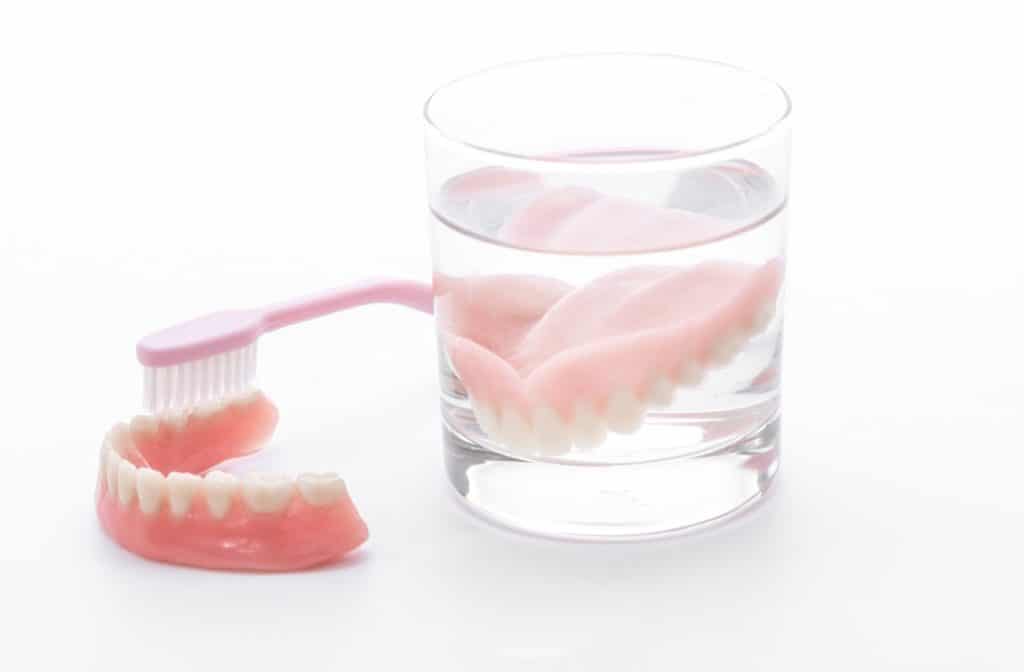How to Clean Dentures and Avoid Bacterial Build-Up
Many people receive dentures when they’re missing teeth due to damage or another cause. Dentures look and act like natural teeth, but they require specialized cleaning to prevent plaque and bacterial build-up. If your dentist fits you with dentures, how do you keep them clean?
If you’re new to dentures, regular cleaning and maintenance can seem a bit confusing. Denture maintenance is more than regular brushing and flossing, but the process is simple after you learn some effective cleaning methods. Continue reading to learn more about denture cleaning and how to avoid bacterial build-up.
Proper Denture Care is Vital
Many people receive dentures to replace missing teeth due to an accident, disease, or other reason. Depending on your specific needs, you may receive partial or complete dentures.
Regardless of the type of dentures you have, you need proper cleaning and maintenance to avoid bacterial build-up and potential complications. You can use the same methods for both types of dentures.
What is Proper Denture Cleaning?
While dentures aren’t natural teeth, they can still have bacterial build up and affect your oral health. With proper denture cleaning, you can remove plaque, debris, and bacteria, keeping your gums and mouth healthy.
The best way to keep your dentures clean is to care for them in 3 main ways:
- Denture removal
- Daily cleaning
- Denture maintenance
Your dentures may look like natural teeth, but you need to clean them differently. This cleaning includes removing and maintaining your dentures regularly.
Denture Removal
You should remove your dentures daily when brushing them and sleeping at night. Taking your dentures out overnight allows your gums and mouth to rest while promoting natural cleaning from your tongue and saliva.
Unless your dentist specifies otherwise, remove and soak your dentures every night. Your dentist will show you how to remove your dentures, but you can follow these steps if you need help:
- Rinse your mouth with warm water or mouthwash.
- Fill your sink with water to avoid damage if you drop your dentures.
- Remove your top dentures by placing your thumb against the front teeth while pressing upward and outward towards your nose.
- Remove the lower denture by slowly pulling on it while using a rocking motion.
Use caution when removing your dentures to avoid any potential damage.
Daily Cleaning
Daily cleaning is essential if you’re hoping to keep your dentures clean and white. While rinsing your mouth with water after meals can help remove debris, you need daily brushing and soaking to help prevent plaque and bacterial build-up.
Use the following tips to help effectively clean your dentures:
Rinse Your Dentures After Meals
Fill your sink with water before removing your dentures to prevent damage if you drop them. Remove your dentures and run them under the tap to remove food debris. Remember to carefully handle your dentures to prevent potential bending or damage.
Clean Your Mouth & Dentures
A soft-bristled toothbrush is the best way to clean your mouth and dentures without risk of damage. Start by cleaning any natural teeth if present, and then use your toothbrush to clean your cheeks, tongue, and the rest of your mouth.
Clean your dentures by soaking them in a denture cleanser and brushing them with a soft-bristled toothbrush.
Avoid using abrasive materials like hard-bristled toothbrushes or toothpaste for your dentures; these materials may cause damage. Vinegar, bleach, and soap aren’t ideal cleaning products.
Finally, make sure to remove any leftover dental adhesives if you use them with your dentures. Never clean your dentures while they’re still inside of your mouth, and rinse with water before reinserting them.
 Denture Maintenance
Denture Maintenance
Besides daily removal and cleaning, denture maintenance can keep your dentures clean and help them last for several years. The following tips can help you effectively maintain your dentures:
Soak Your Dentures Nightly Dentures
Keep your dentures clean and moist when not wearing them. You can soak your dentures in a glass of cool water or a cleaning solution. Your dentist can recommend the best soaking and care instructions, but always avoid using hot water when soaking your dentures to avoid potential warping.
Schedule Regular Dental Visits
Schedule regular visits with your dentist to keep your dentures in their best condition. Changes can happen with time, and your dentures may need readjustments or realignments. Loose dentures can cause irritation, sores, or possible infection.
Visiting your dentist can help them identify any issues with your dentures.
Take Care of Your Oral Health
No matter the type of dentures you have, you need to keep them clean and maintained to avoid potential bacterial build-up.
Remember to remove, clean, and soak your dentures every day. Cleaning is more than removing food debris; it’s essential to remove plaque and other bacteria. Taking care of your dentures can help them last for years to come.
If you’re having issues with your dentures or need them examined, contact your dentist today.

